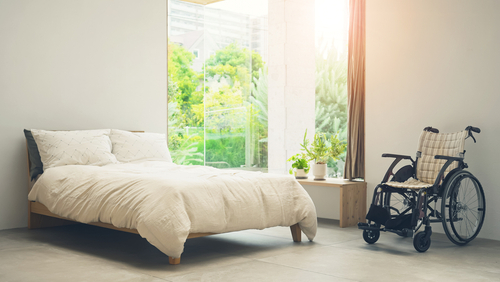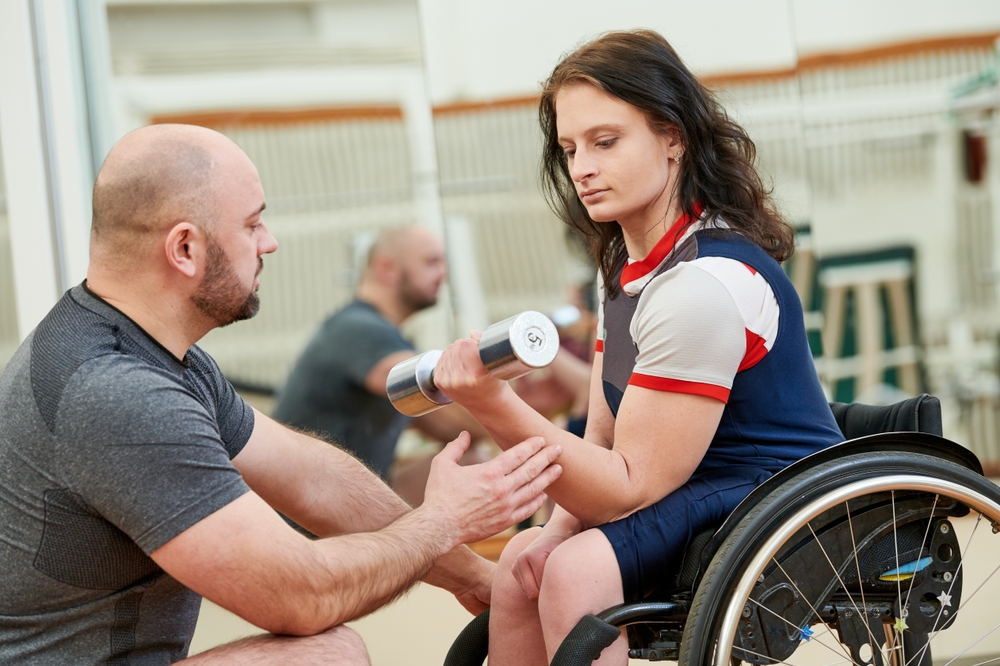Make an Appointment
Specialist Disability Accommodation (SDA) is a type of housing designed for individuals with significant and permanent disabilities. These homes are built or modified to meet the specific needs of the individuals who will be living there, and are intended to promote independence, safety, and inclusion.
SDA is funded by the Australian government and administered by the National Disability Insurance Scheme (NDIS). The NDIS is a national program that provides support and funding for individuals with disabilities to help them live independently and participate fully in their communities.
SDA homes are designed to meet the unique needs of the individual and may include features such as wheelchair ramps, hoists, and other assistive technology to help with mobility, as well as specialized bathrooms, kitchens, and bedrooms. They may also include features such as security systems and alarms to ensure the safety and well-being of the residents.
SDA homes can be either group homes or individual houses. Group homes are shared living spaces where individuals with disabilities live together with the support of carers, while individual houses are standalone homes that are designed and built specifically for a single person or family.
One of the main advantages of SDA is that it allows individuals with disabilities to live in a home that is specifically designed to meet their needs, rather than in a traditional home that may not be accessible or safe for them. This can greatly improve their quality of life and help them to live independently and participate fully in their communities.
SDA is a housing option specifically designed for individuals with significant and permanent disabilities, that is funded by the Australian government and administered by the National Disability Insurance Scheme (NDIS) to support and promote independence, safety, and inclusion for people with disabilities.
The benefits of Specialist Disability Accommodation for individuals with disabilities
Specialist Disability Accommodation (SDA) is a type of housing designed specifically for individuals with significant and permanent disabilities. These homes are built or modified to meet the specific needs of the individuals who will be living there, and are intended to promote independence, safety, and inclusion.
One of the main benefits of SDA is that it allows individuals with disabilities to live in a home that is specifically designed to meet their needs. This can greatly improve their quality of life and help them to live independently and participate fully in their communities.
SDA homes are designed to be fully accessible and may include features such as wheelchair ramps, hoists, and other assistive technology to help with mobility, as well as specialized bathrooms, kitchens, and bedrooms. This ensures that individuals with disabilities are able to move around the house with ease and safety. This not only provides them with a sense of independence but also provides them with a sense of normalcy and belonging.
Another benefit of SDA is the level of safety and security provided. SDA homes may include features such as security systems and alarms to ensure the safety and well-being of the residents. This can provide peace of mind for both the individual with a disability and their family and carers.
SDA homes also provide social and emotional benefits. Group homes provide an opportunity for individuals with disabilities to live with other people who have similar needs, which can foster a sense of community and belonging. This can be especially beneficial for those who may have limited social connections outside of the home.
In conclusion, SDA offers many benefits for individuals with disabilities, including the ability to live in a home that is specifically designed to meet their needs, improved safety and security, and the ability to live in a community with others who have similar needs. These benefits can greatly improve the quality of life for individuals with disabilities and help them to live independently and participate fully in their communities.
The challenges of finding and securing Specialist Disability Accommodation
Finding and securing Specialist Disability Accommodation (SDA) can be a challenging process for individuals with disabilities and their families. There are a number of factors that can make it difficult to find and secure suitable SDA.
One major challenge is the limited availability of SDA. There is a shortage of SDA homes in many areas, and the demand for these homes often exceeds the supply. This can make it difficult for individuals with disabilities to find a suitable home in a location that is convenient for them and their families.
Another challenge is the cost of SDA. SDA homes can be expensive to build or modify, and the cost of renting or buying one of these

The role of carers and support workers in Specialist Disability Accommodation
Carers and support workers play a crucial role in ensuring that individuals with disabilities living in SDA are able to live their lives to the fullest.
Carers and support workers provide a wide range of services to individuals with disabilities living in SDA. They can assist with tasks such as dressing, grooming, and personal hygiene, as well as with more complex tasks such as administering medication and providing medical care. They also provide emotional and social support to individuals with disabilities, helping them to maintain relationships with family and friends, and to participate in the community.
In group homes, carers and support workers are responsible for ensuring that the residents are safe, well-cared for, and that their needs are met. They work closely with residents and their families to create individualized care plans that are tailored to the residents' specific needs. They also work closely with other professionals such as nurses, occupational therapists, and social workers, to ensure that residents receive the best possible care.
In individual houses, carers and support workers may provide more personalized support to the individual with a disability. This includes providing assistance with daily living activities, such as cooking, cleaning, and laundry, as well as companionship and emotional support. They also work closely with the individual's family and other professionals to develop an individual care plan that addresses the specific needs of the resident.
In addition to providing direct care, carers and support workers also play an important role in promoting independence for individuals with disabilities living in SDA. They work with residents to help them learn new skills, build self-confidence, and achieve their goals. This can include things like learning how to use assistive technology, participating in community activities, and finding employment.
Carers and support workers play a vital role in ensuring that individuals with disabilities living in SDA are able to live their lives to the fullest
The process of applying for and receiving funding for Specialist Disability Accommodation through the NDIS
If you are an individual with a significant and permanent disability, you may be eligible for funding through the NDIS for SDA. The process of applying for and receiving funding for SDA through the NDIS can be complex, so it is important to understand the steps involved.
The first step in the process is to apply for NDIS funding. You will need to complete an NDIS Access Request form and provide documentation that confirms your eligibility for the scheme. This may include proof of your disability, such as a medical certificate, and information about your current living arrangements and support needs.
Once your application for NDIS funding has been approved, you will be assigned a Case Manager who will work with you to develop a support plan that outlines your needs and goals. The Case Manager will also be able to provide you with information about SDA options and help you to identify a suitable property.
When you have found a property that meets your needs, your Case Manager will work with you to complete a Specialist Disability Accommodation (SDA) funding request form, which will be assessed by the NDIS. The NDIS will then determine the level of funding that will be provided for the SDA.
It's important to note that SDA funding is not a one-time payment, but rather it is an ongoing funding that will be reviewed and reassessed at regular intervals.
The process of applying for and receiving funding for SDA through the NDIS can be complex, but with the help of a Case Manager and the right information, it is possible to find and secure suitable SDA that meets your needs and goals.
In conclusion, NDIS funding for SDA is an option for individuals with significant and permanent disabilities, the process includes an application, an assessment of the individual's needs, and the allocation of funds. The process can be complex, but with the help of a Case Manager and the right information, it is possible to find and secure suitable SDA that meets the needs and goals of the individual.
Date Published: Tuesday, January 24, 2023
Need to get into direct contact with ur Client Services team? We're all ears. Call our team directly on 1300 731 733



